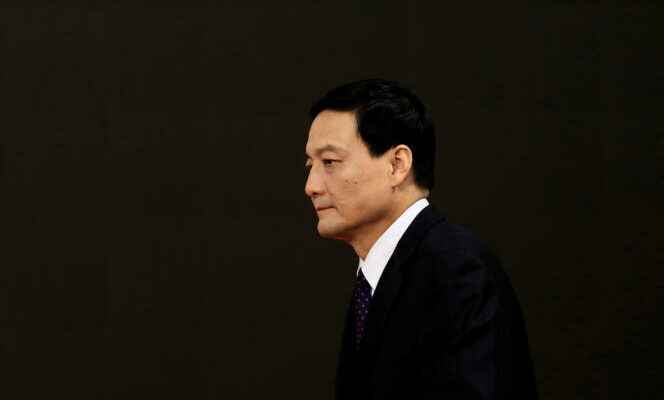The timing did not leave observers indifferent: while the Speaker of the United States House of Representatives, Nancy Pelosi, had just visited, at the beginning of August, the flagship of semiconductors in Taiwan, the world number one in chip production, Taiwan Semiconductor Manufacturing Company (TSMC), Beijing fined officials of this highly strategic sector, including an industry minister. On either side of the Taiwan Strait, the contrast is striking: while the independent island claimed by Beijing is counting on its industry, the best in the world, to strengthen its geopolitical influence, China is cleaning up in a sector gripped by speculation.
At the end of July, the Central Commission for Discipline Inspection of the Party (CCIDP) announced an investigation against Ding Wenwu, the general manager of the National Investment Fund on integrated circuits, nicknamed the “big fund” in China. Ten days later, the CCIDP launched an investigation against Du Yang, the former director of Sino IC Capital, the holding company managing the investments of this fund, for “serious violation of discipline and the law”. Two other managers of the firm are involved in the investigation of the all-powerful CCIDP, conducted in collaboration with the Ministry of Industry and Information Technology. Xiao Yaqing, the former industry minister who was supposed to oversee the sector, has also been charged with corruption, although it is unclear whether the two cases are related.
China launched its “big fund” in 2014 with the aim of managing the 140 billion yuan, or 20 billion euros, of public funds allocated to this sector. As the world’s leading producer of electronic products, China is largely dependent on imports for the most sophisticated semiconductors. At the same time, the Made in China 2025 plan set the objective of producing locally 40% of the chips used by Chinese industry in 2020, and 70% in 2025. It is a failure. The share of local chip production has increased from 15.1% in 2014 to 16.7% in 2021, according to IC Insights, a US research firm.
Sophistication
Another state-owned company very active in the sector, Tsinghua Unigroup has also spent billions to acquire foreign nuggets, such as the French Linxens, or the American Micron Technology, whose acquisition was finally blocked by the American administration. Over-indebted, the group has been in default of payment since 2020, and was finally taken over by a consortium of companies responsible for saving it. Its founder, Zhao Weiguo, had shown Tsinghua Unigroup to Chinese President Xi Jinping in 2018. In July, he was in turn targeted by an investigation and placed in detention.
You have 35.08% of this article left to read. The following is for subscribers only.
